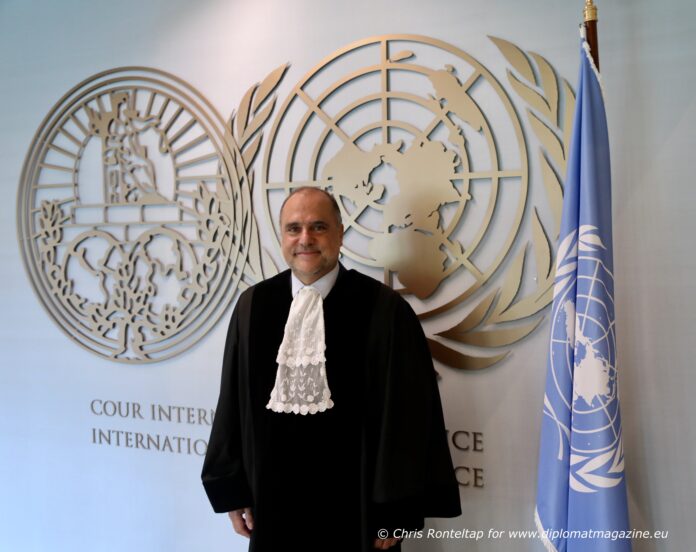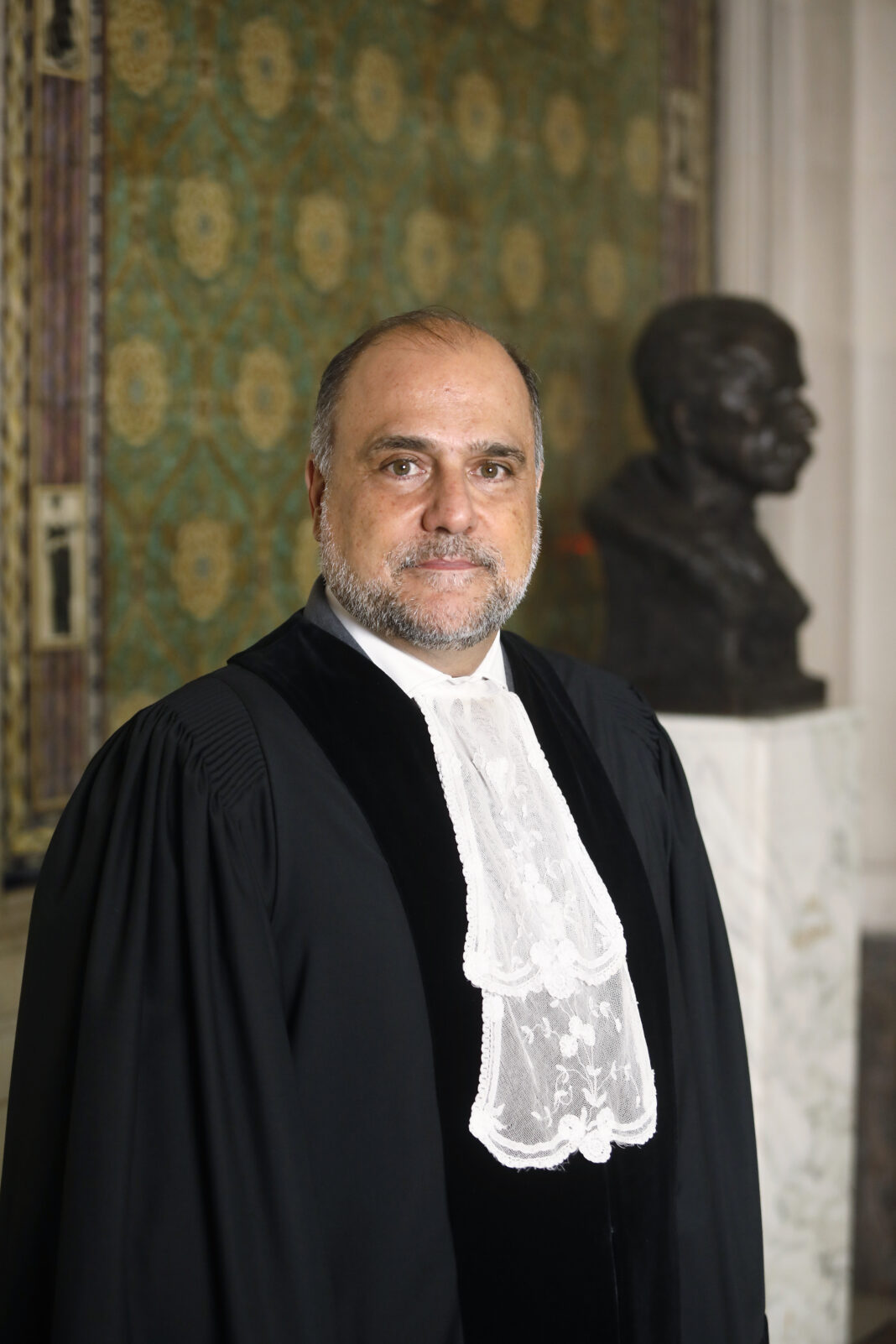Brazil’s Contribution to the Peaceful Settlement of Disputes between States at the International Court of Justice
By H.E. Judge Leonardo Brant
For over a century, through remarkable jurists, Brazil has stood out as a fervent defender of the principles of equality among nations, peaceful dispute resolution, the preservation of peace, and the humanization of international law. In these times of uncertainty marked by a resurgence of armed conflicts on the global stage, the Court has never been more solicited. In this context, as the sixth Brazilian judge to have the honour of sitting on the world court, my mandate will be guided by these fundamental principles for which my predecessors tirelessly advocated and which, in my view, will ensure fairness and justice in a world darkened by adversity.
Introduction
Brazil’s contribution to the development of international law, and in particular to the peaceful settlement of disputes between States, has historically been based on four fundamental principles: the prohibition of the use of force, the principle of legal equality between States, whether rich or poor, the strengthening of international jurisdiction and the humanization of international law. Eminent Brazilian jurists have successively embodied the defense of these principles, which have become an integral part of contemporary international law. In so doing, they have contributed not only to the emancipation of Brazil and the states of Latin America, but also to all the nations of the global South.
Brazil’s Doctrinal Contribution to the Establishment of Peaceful Dispute Settlement and the PCIJ.
At the 1907 Peace Conference, eminent jurist Rui Barbosa played a prominent role as head of the Brazilian delegation and left a lasting impression. During this conference, his influence enabled him to rally the support of Latin American nations against the initiative to create an international court whose composition did not conform to the principle of equality between great powers and small states. At a time when this principle had yet to be established, jurist Rui Barbosa was already arguing that: “Sovereignty is the fundamental right par excellence of constitutional and independent states” and that “sovereignty means equality”.
H.E. Judge Epitácio Pessoa, former President of Brazil, played a major role in the codification of international law and the affirmation of equality between states. Leading the Brazilian delegation at the Paris Conference, he publicly opposed the aspirations of powerful states to form an influential group, reiterating that all countries should participate in peace negotiations on equal terms. As the President of the Advisory Committee appointed by the League of Nations, he contributed to the development of a Code of International Law. Finally, he was one of the initial judges to sit on the Permanent Court of International Justice (PCIJ) from 1922 to 1930.
The contribution of Brazilian diplomat H.E. Mr. Raul Fernandes is also hailed as invaluable. He staunchly opposed the special procedures for appointing judges that favoured the great powers of the time, and instead advocated a single procedure for permanent and non- permanent judges. This procedure was intended to preserve equality between all States. H.E. Mr. Raul Fernandes is also known for advocating the binding effect of the Court’s judgments and for making its jurisdiction compulsory. As this proposal was not accepted by some nations, H.E. Mr. Raul Fernandes skillfully suggested the historic article that became article 36 (2) of the Statute of the International Court of Justice (ICJ), the optional clause of compulsory jurisdiction, thus setting a lasting mark on the settlement of disputes between States.

Brazil’s Judicial Contribution to the International Court of Justice.
It is also opportune to highlight the invaluable contribution of Brazilian judges to the International Court of Justice in the second half of the twentieth century. We should first mention the significant contribution of H.E. Judge José Philadelpho de Barros e Azevedo, in particular his participation in the Corfu Channel judgment, which contributed to the development of the regime of State responsibility for actions affecting international waters. H.E. Judge Levi Fernandes Carneiro’s legal legacy includes his involvement in the Monetary Gold Removed from Rome in 1943, which was of great importance in international law, particularly with regard to the immunity of a state’s property from foreign jurisdiction in wartime. Finally, as a member of the International Law Commission, a well-deserved tribute must be paid to H.E. Judge José Sette-Camara, the last Brazilian judge to sit on the Court as Vice-President, from 1982 to 1985.
In the twenty-first century, H.E. Judge Francisco Rezek first marked the ICJ with his commitment to peace, justice, and respect for law in international relations. Among the high-profile cases to which he contributed his invaluable expertise was the Lagrand case, in which the Court ruled for the first time that orders indicating provisional measures are binding, and thus gave itself the means to intervene in the most violent conflicts, to propose measures to mitigate their consequences, and to prevent their escalation. Finally, tribute must be paid to the contribution of H.E. Judge Cançado Trindade, particularly his vision of “humanized international law”, based on the concept of a “new jus gentium”. In his individual opinions and dissenting votes, he consistently emphasized the central role of human beings as the ultimate beneficiaries of all legal norms.
In the first year of my mandate many different cases have been solicited at the Court concerning Racial Discrimination, Financing Terrorism, Genocide, Human Rights Violations etc. and I am inspired by my predecessors to renew my commitment and contribute to the peaceful settlement of disputes and the progressive development of International Law made by the Courts jurisprudence.



